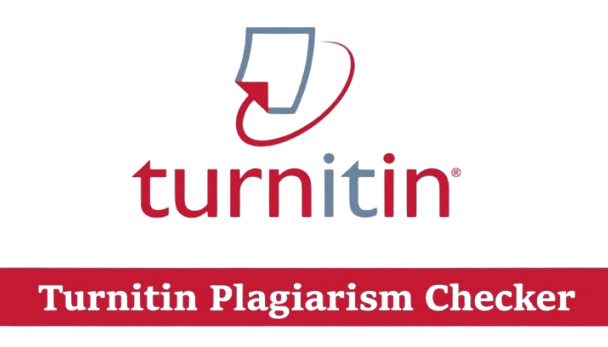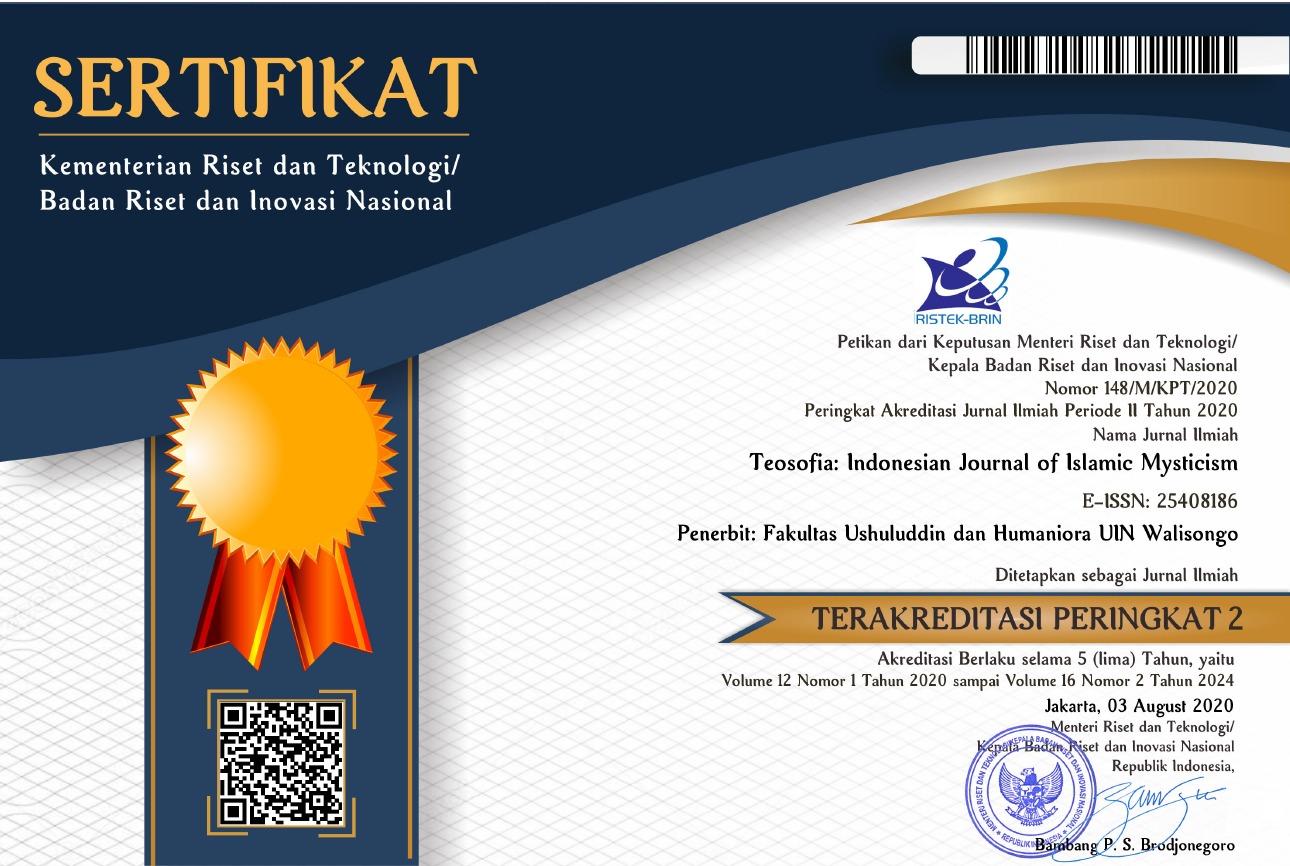Sufism-Based Management for Improving Working Performance in the 4.0 Industrial Era: A Phenomenological Perspective
DOI:
https://doi.org/10.21580/tos.v12i1.14323Keywords:
contextual Sufism, industrial era 4.0, university performance, FTIK, UIN Saizu PurwokertoAbstract
Sufism is often understood as an approach to cleansing one's soul (tazkiyat al-nafs). Its infusion to human resource management is severely underutilised. This article aims to describe the managerial experience and services of a Sufism-based institution, namely the Faculty of Tarbiyya and Teacher Training UIN Prof. K.H. Saifuddin Zuhri, Purwokerto. The faculty has implemented Sufism-based management to improve its employee performance in the industrial revolution 4.0. This paper is qualitative research with a phenomenological approach. Data are collected through participatory observation, in-depth interviews, and documentation. Twelve key informants comprising officials, lecturers, administrative staff, and students, were invited. The data were then analysed by employing Smith's model. The finding showed that spiritually clean and healthy officials could stimulate wiser organisational behaviour, stimulate bright ideas (innovations), and shape a stronger desire to follow up on problems. This Sufism-based management supports the improvement of the service quality of the institution internally, externally, and eternally.
Contribution: This study contributes to the literature on Sufism-based management in the sense of providing practical implementation of takhallī, taḥallī, and tajallī in managementDownloads
References
Abuali, Eyad. “‘I Tasted Sweetness, and I Tasted Affliction’: Pleasure, Pain, and Body in Medieval Sufi Food Practices.” The Senses and Society 17, no. 1 (2022): 52–67. https://doi.org/10.1080/17458927.2021.2020607.
———. “Words Clothed in Light: Dhikr (Recollection), Colour and Synaesthesia in Early Kubrawi Sufism.” Iran: Journal of the British Institute of Persian Studies 58, no. 2 (2020): 279–92. https://doi.org/10.1080/05786967.2019.1583046.
Ahmad, Maghfur. “Three Sufi Communities Guarding the Earth: A Case Study of Mitigation and Adaptation to Climate Change in Indonesia.” Al-Jami’ah 57, no. 2 (2019): 359–96. https://doi.org/10.14421/ajis.2019.572.359-396.
Al-Anshary, Abu Ismail Abdullah ibn Muhammad ibn Ali ibn Muhammad ibn Ahmad. Manazil Al-Sairin Ila Al-Haqq Al-Mubin. Tunisia: Dar al-Turk li al-Nasyr, 1989.
al-Ghazali. Ihya’ Ulum Al-Din. Kediri: TP, 1983.
Al-Ghazali, Abu Hamid ibn Ahmad. Ihya’ Ulum Al-Din. Ats-Tsurayya, 1982.
Al-Ghazali, Abu Hamid Muhammad. Ihya Ulum Al-Din III. Semarang: Toha Putra, 2016.
Al-Sakandary, Ibnu Athaillah. Kitab Hikam. Semarang: Toha Putra, 1992.
Almirzanah, Syafaatun. “God, Humanity and Nature: Cosmology in Islamic Spirituality.” HTS Teologiese Studies / Theological Studies 76, no. 1 (2020): 1–10. https://doi.org/10.4102/hts.v76i1.6130.
Alvarez-Cedillo, Jesus, Mario Aguilar-Fernandez, Raul Sandoval-Gomez, and Teodoro Alvarez-Sanchez. “Actions to Be Taken in Mexico towards Education 4.0 and Society 5.0.” International Journal of Evaluation and Research in Education 8, no. 4 (2019): 693–98. https://doi.org/10.11591/ijere.v8i4.20278.
Ana, A., Danny Meirawan, Vina Dwiyanti, and S. Saripudin. “Character of Industrial 4.0 Skilled Workers.” International Journal of Engineering and Technology(UAE) 7, no. 4 (2018): 166–70. https://doi.org/10.14419/ijet.v7i4.33.23524.
Azrai, Eka Putri, Daniar Setyo Rini, and Ade Suryanda. “Micro-Teaching in the Digital Industrial Era 4.0: Necessary or Not?” Universal Journal of Educational Research 8, no. 4A (2020): 23–30. https://doi.org/10.13189/ujer.2020.081804.
Bahadorani, Nasim, Jerry W. Lee, and Leslie R. Martin. “Implications of Tamarkoz on Stress, Emotion, Spirituality and Heart Rate.” Scientific Reports 11, no. 1 (2021): 1–17. https://doi.org/10.1038/s41598-021-93470-8.
Firdaus, Achmad. “Determination of Organisational Essential Needs as the Basis for Developing a Maṣlaḥah-Based Performance Measurement.” ISRA International Journal of Islamic Finance 13, no. 2 (2021): 229–50. https://doi.org/10.1108/IJIF-11-2017-0041.
Fuadi, Moh Ashif. “Comparative Study of Manakib Nurul Burhani Book with Jawahirul Maani and The Teachings of Sufism in the Book Hagiography.” IBDA` : Jurnal Kajian Islam Dan Budaya 19, no. 2 (2021): 243–65. https://doi.org/10.24090/ibda.v19i2.4789.
Gui, Anderes, Yudi Fernando, Muhammad Shabir Shaharudin, Mazita Mokhtar, I. Gusti Made Karmawan, and Suryanto. “Drivers of Cloud Computing Adoption in Small Medium Enterprises of Indonesia Creative Industry.” International Journal on Informatics Visualization 5, no. 1 (2021): 69–75. https://doi.org/10.30630/joiv.5.1.461.
Hartati, Sri. “Tazkiyatun Nafs as an Effort to Reduce Premarital Sexual Behavior of Adolescents.” Islamic Guidance and Counseling Journal 1, no. 1 (2018): 33–44. https://doi.org/10.25217/igcj.v1i1.207.
Heritage, Margaret. “Assessment for Learning as Support for Student Self-Regulation.” Australian Educational Researcher 45, no. 1 (2018): 51–63. https://doi.org/10.1007/s13384-018-0261-3.
Hermayawati. “Teachers’ Efforts in Understanding the Factual, Conceptual, Procedural and Metacognitive Assessment Using the Revised 2013 Curriculum.” International Journal of Learning, Teaching and Educational Research 19, no. 5 (2020): 186–99. https://doi.org/10.26803/ijlter.19.5.11.
Hysa, Beata, Aneta Karasek, and Iwona Zdonek. “Social Media Usage by Different Generations as a Tool for Sustainable Tourism Marketing in Society 5.0 Idea.” Sustainability 13, no. 3 (2021): 10–18. https://doi.org/https://doi.org/10.3390/su13031018.
Joelle, Maria, and Arnaldo Matos Coelho. “The Impact of Spirituality at Work on Workers’ Attitudes and Individual Performance.” The International Journal of Human Resource Management 30, no. 7 (April 12, 2019): 1111–35. https://doi.org/10.1080/09585192.2017.1314312.
Kasmuri. “Konsep Tasawuf Menurut Syaikh Abdul Qadir Al-Jilani Dan Relevansinya Terhadap Problem Masyarakat Modern.” UIN Walisongo, 2022.
Liu, Zheng, and Victoria Stephens. “Exploring Innovation Ecosystem from the Perspective of Sustainability: Towards a Conceptual Framework.” Journal of Open Innovation: Technology, Market, and Complexity 5, no. 3 (2019): 48. https://doi.org/10.3390/joitmc5030048.
Mahmud, Syamsul H., Laromi Assan, and Rashidul Islam. “Potentials of Internet of Things (IoT) in Malaysian Construction Industry.” Annals of Emerging Technologies in Computing 2, no. 4 (2018): 44–52. https://doi.org/10.33166/AETiC.2018.04.004.
Maulani, Galih Abdul Fatah, and Nizar Alam Hamdani. “Can Universities Improve Their Competitiveness Using Information Technology?” International Journal of Engineering and Advanced Technology 8, no. 6 Special Issue 3 (2019): 456–58. https://doi.org/10.35940/ijeat.F1083.0986S319.
Milán Fitera, Jorge. “Public Service Broadcasting in Taiwan: Cultural Issues and National Identity Conveyed in Documentaries.” Church, Communication and Culture 4, no. 2 (2019): 184–215. https://doi.org/10.1080/23753234.2019.1616577.
Ni’am, Syamsun. “The Debate of Orthodox Sufism and Philosophical Sufism The Study of Maqamat in the Siraj Al-Talibin of Shaykh Ihsan Jampes.” Al-Jami’ah 58, no. 1 (2020): 1–34. https://doi.org/10.14421/ajis.2020.581.1-34.
Pereira, Andreia G, Tânia M Lima, and Fernando Charrua Santos. “Industry 4.0 and Society 5.0: Opportunities and Threats.” International Journal of Recent Technology and Engineering 8, no. 5 (2020): 3305–8. https://doi.org/10.35940/ijrte.D8764.018520.
Petchsawang, Pawinee, and Dennis Duchon. “Workplace Spirituality, Meditation, and Work Performance.” Journal of Management, Spirituality and Religion 9, no. 2 (2012): 189–208. https://doi.org/10.1080/14766086.2012.688623.
Roblek, Vasja, Maja Meško, Mirjana Pejić Bach, Oshane Thorpe, and Polona Šprajc. “The Interaction between Internet, Sustainable Development, and Emergence of Society 5.0.” Data 5, no. 3 (2020): 1–27. https://doi.org/10.3390/data5030080.
Saeed, Muzammil. “Newspapers and Dynamics of Religious Communication: The Test Case of Sufi News.” Journal of Islamic Thought and Civilization 11, no. 1 (2021): 201–16. https://doi.org/10.32350/jitc.111.11.
Saputri, Riska Anggraini, Muchtarom, and Winarno Triyanto. “Reinforcing Civics Literacy in Sustaining Students’ Learning in the Industrial Era 4.0.” Universal Journal of Educational Research 7, no. 9 A (2019): 36–43. https://doi.org/10.13189/ujer.2019.071605.
Shepherd, Stephane M., Cynthia Willis-Esqueda, Danielle Newton, Diane Sivasubramaniam, and Yin Paradies. “The Challenge of Cultural Competence in the Workplace: Perspectives of Healthcare Providers.” BMC Health Services Research 19, no. 1 (2019): 1–11. https://doi.org/https://doi.org/10.1186/s12913-019-3959-7.
Suwito, Hendri Purbo Waseso, Ahmad Sahnan. “Fenomena Young Sufism Di Indonesia.” Purwokerto, 2022.
Suwito. “Eko-Sufisme Studi Tentang Usaha Pelestarian Lingkungan Pada Jama’ah Mujahadah Ilmu Giri Dan Jama’ah Aoliya’Jogjakarta.” Disertasi. UIN Syarif Hidayatullah, 2011.
———. Eko-Sufisme Studi Tentang Usaha Pelestarian Lingkungan Pada Jama’ah Mujahadah Ilmu Giri Dan Jama’ah Aoliya’Jogjakarta. Edited by Abdul Wachid. 1st ed. Jakarta: UIN Syarif Hidayatullah, 2011.
Suwito, Fuad Ah. Zakki, Hidayat Arif, Novianti Ida, Muflihah, and Widaputri Mazaya Conita. “Language Acquisition Through Sufism (A Case Study of Sufism Concept and Implementation of Learning English through Subconscious-Installing Method [LET-IM] in Kuanta Indonesia).” Asian EFL 23, no. 3.2 (2019): 143--158.
Suwito, Suwito. “Sistem Menghafal Cepat Al-Quran 40 Hari Untuk 30 Juz (Studi Di Ma’had Tahfidz Al-Quran Di Dawuhan Purbalingga).” Purwokerto: IAIN Purwokerto, 2016. http://repository.iainpurwokerto.ac.id/3946/2/Versi Jurnal.doc.
Suwito, Suwito, Muflihah Muflihah, Abdul Wachid BS, Suparjo Suparjo, Ali Mas’ud, and Corry Aina Widaputri. “Metaphorical-Enactive: Al-Ghazali’s Education Media on Sufism Themes.” In Proceedings of the 2nd Borobudur International Symposium on Humanities and Social Sciences, 2020. https://doi.org/http://dx.doi.org/10.4108/eai.18-11-2020.2311609.
Suwito, Suwito, Ida Novianti, Suparjo Suparjo, Corry A. Widaputri, and Muhammad ’Azmi Nuha. “Hybrid Sufism for Enhancing Quality of Life: Ethnographic Perspective in Indonesia.” HTS Teologiese Studies / Theological Studies 78, no. 4 (2022): 1–8. https://doi.org/10.4102/HTS.V78I4.7198.
Trisnawati, Trisnawati. “Jurnal Ilmiah Administrasi Publik (JIAP).” Jurnal Ilmiah Administrasi Publik (JIAP) 2, no. 1 (2016): 58–67. https://doi.org/https://doi.org/10.21776/ub.jiap.2016.002.01.3.
Wolniak, Radosław, and Bożena Skotnicka-Zasadzień. “Improvement of Services for People with Disabilities by Public Administration in Silesian Province Poland.” Sustainability 13, no. 2 (2021): 1–26. https://doi.org/10.3390/su13020967.
Wong, Brian Kee Mun, and Sarah Alia Sa’aid Hazley. “The Future of Health Tourism in the Industrial Revolution 4.0 Era.” Journal of Tourism Futures 7, no. 2 (2020): 267–72. https://doi.org/10.1108/JTF-01-2020-0006.
Yee, Jeffrey Khong Loong, Jonathan Smith, and Simon Robinson. “Spiritual Well-Being and Work Performance among Ground-Level Employees: Unravelling the Connection.” Pertanika Journal of Social Sciences and Humanities 29, no. 3 (2021): 1671–91. https://doi.org/10.47836/pjssh.29.3.11.
Yuan, Ying, and Jun Ho Huh. “Customized CAD Modeling and Design of Production Process for One-Person One-Clothing Mass Production System.” Electronics 7, no. 11 (2018). https://doi.org/10.3390/electronics7110270.
Downloads
Published
How to Cite
Issue
Section
License
Copyright
The copyright of the received article shall be assigned to the journal as the publisher of the journal. The intended copyright includes the right to publish the article in various forms (including reprints). The journal maintains the publishing rights to the published articles. Therefore, the author must submit a statement of the Copyright Transfer Agreement.*)
Licensing

This work is licensed under a Creative Commons Attribution-ShareAlike 4.0 International License.
In line with the license, authors are allowed to share and adapt the material. In addition, the material must be given appropriate credit, provided with a link to the license, and indicated if changes were made. If authors remix, transform or build upon the material, authors must distribute their contributions under the same license as the original.
_______
*) Authors whose articles are accepted for publication will receive confirmation via email and send a Copyright Transfer Agreement.








